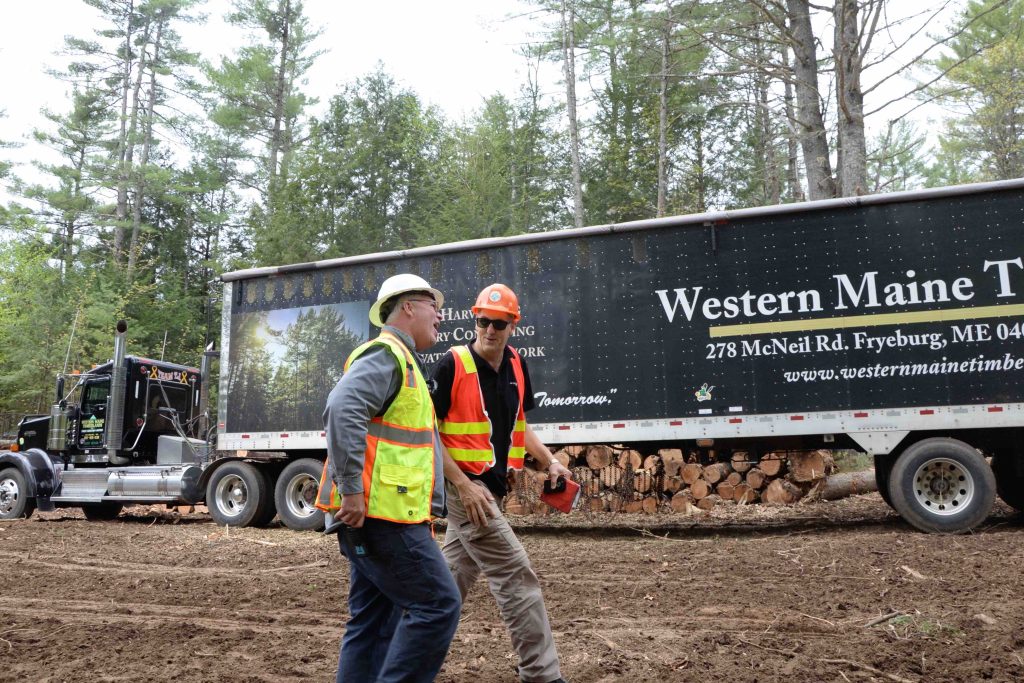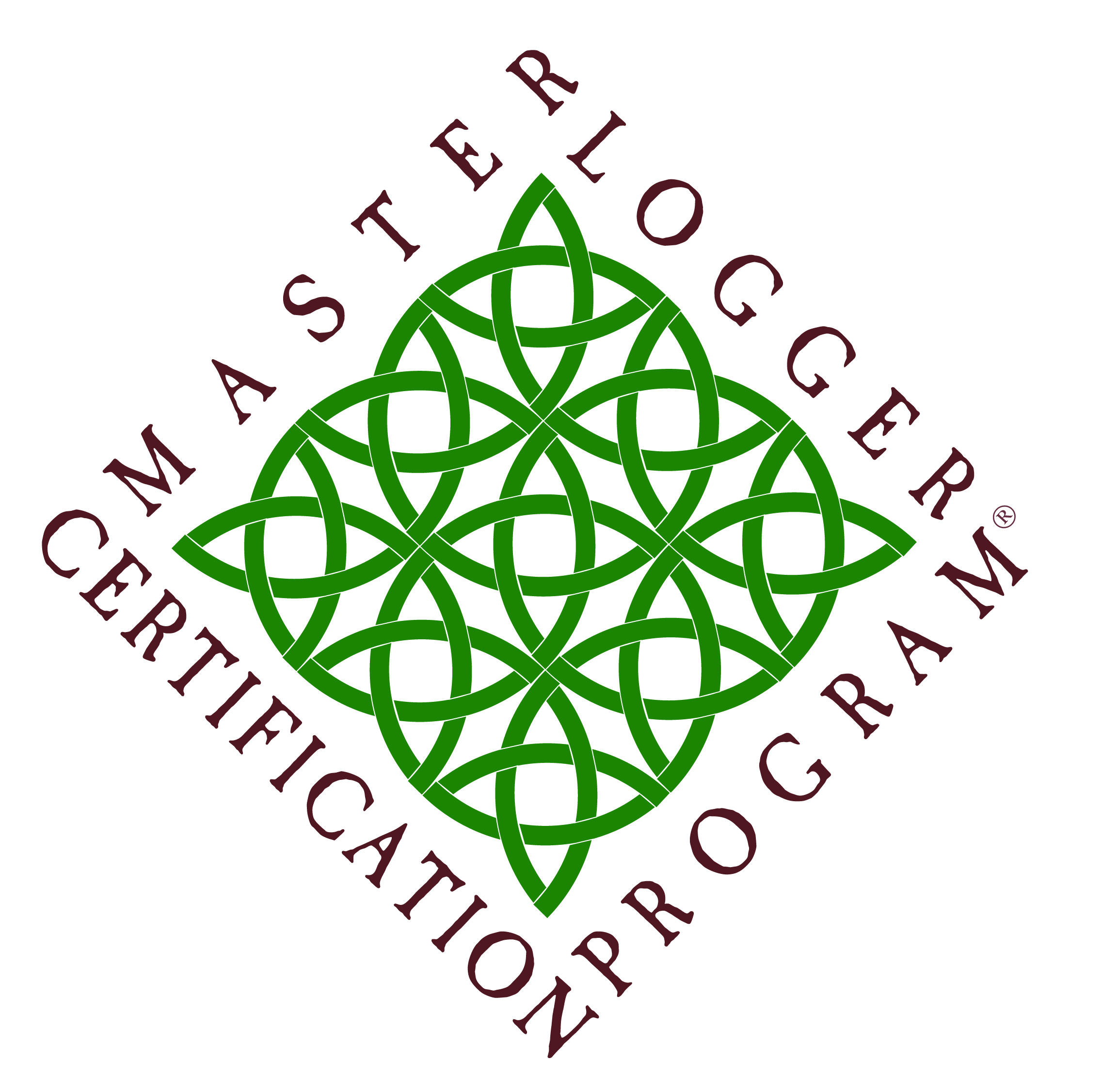David Bennett spent much of this spring traveling across the world to evaluate the risks and benefits of forest contractor certification programs with an eye toward adapting the best practices he observed to strengthen forest management and the logging industry in his native Australia.

David Bennett, above at right, meeting with Maine Master Logger Marc Greaney of Western Maine Timberlands, Inc.
Traveling on a stipend from the Gottstein Trust, the Risk and Compliance Manger for PF Olsen Australia spent a week in Maine with the Northeast Master Logger Certification© (NEMLC) program midway through his trip. He found many strengths in the program, but one really stood out.
“I think probably the biggest strength of Master Logger is it’s got such contractor ownership of it,” David said weeks later in a call from Sweden as he was nearing the end of his trip. “It’s got a real standard that contractors administer and own, I haven’t found anything else like that anywhere in the world.”
David’s observations about the program offer a rare chance to hear firsthand how the American Loggers Council (ALC) Master Logger Certification© program compares to other systems in place around the world. Long billed proudly as the only system of harvest verification created and controlled by loggers themselves, his experiences reviewing logging certification in multiple locations across Canada, the United States, and Europe suggest that claim is a valid and valuable one.
In some of the locations he visited, David did not get the opportunity to meet with loggers but instead dealt with public or private organizations administering whatever certification or logger oversight programs existed. During his visit to Maine, he therefore greatly appreciated the opportunity to spend a lot of time with Master Loggers in the woods on active logging jobs, at their places of business, and at a safety training event in Fort Kent, Maine offered by the state’s logger trade association, The Professional Logging Contractors of Maine (PLC), and NEMLC and open to all Maine Master Loggers.
“The training session I attended in Fort Kent was some of the most practical training I’ve seen anywhere,” David said.
David got the opportunity to meet dozens of Maine Master Loggers, and visited multiple harvest sites of Master Logger company Western Maine Timberlands Inc. He left with a very favorable impression of Master Loggers, and of the program.
Ted Wright, Executive Director of the Northeast Master Logger Certification© program, spent three days with David helping him understand the program and the benefits Master Loggers participants find in it, including pride, professionalism, a marketing edge for their businesses, and - depending on what region of the country they are in - other benefits that can include insurance advantages and preference from mills and other timber consumers.
Master Logger Certification© is set apart from logger training programs in that it requires independent third party verification of logger harvesting practices.
Because Master Logger© is a voluntary, earned designation based on performance, it awards the certification only to true professionals in the industry who are willing to go through the evaluation process, something attendance based training programs were never designed to do.
Some countries David visited have no formal certification program at all, others have quite rigorous oversight of loggers, but David observed that while certification practices may differ, loggers across the world share many of the same issues. Uncertain markets, ongoing safety risks, growing costs and environmental regulations, and difficulty attracting and retaining the next generation of loggers are common to many locations including his native Australia. He also observed that in most places, logging companies are predominantly family businesses, often second or third generation.
There was great value in meeting loggers and others involved in the forest economy around the globe, David said, and he concluded there is a lot we can all learn from each other. David is now preparing a report for his sponsor the Gottstein Foundation and is progressively publishing information on the website he created for this project (https://dgbgottstein2019.me/)
“Forestry people like talking to other forestry people, and it’s something we should do more often,” David said.

Recent Comments